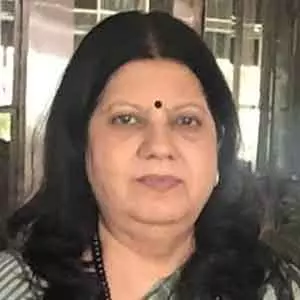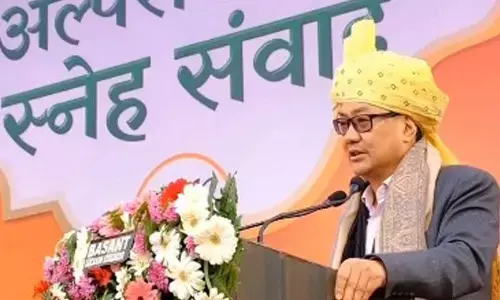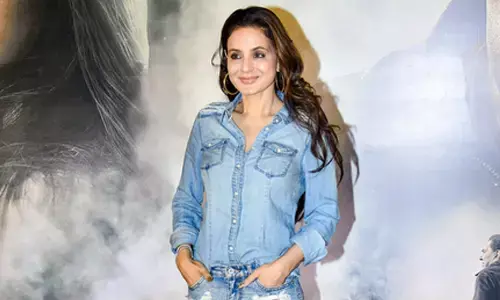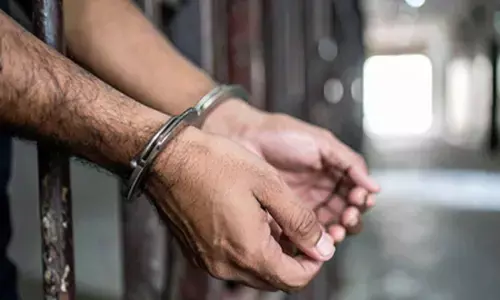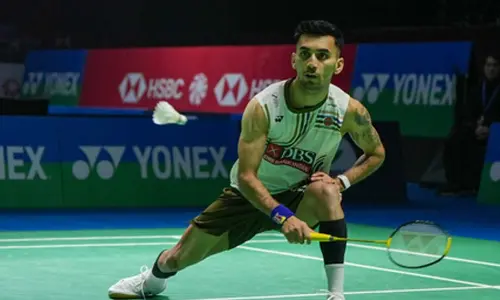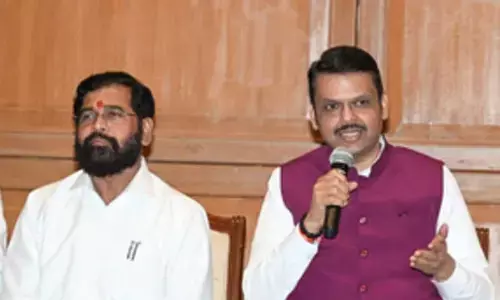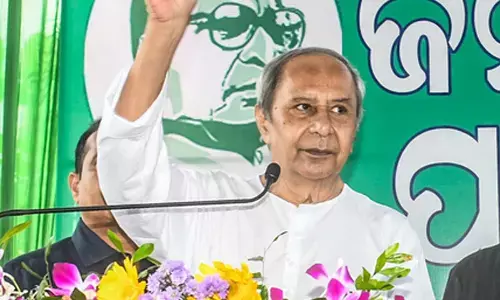Modi for Skilled India, not Scam India

New Delhi: Modi for Skilled India, not Scam India, Prime Minister Narendra Modi in his maiden speech in both Houses of Parliament unveiled his roadmap to change the country’s identity from “Scam India,” to “Skilled India
- Wants to cleanse public life from the taint of criminalisation
- Says India has achieved Swaraj not Su-Raj
- To make struggle for good governance into a people’s movement
- Centre and States should work as a team as equals
- Takes a dig at Cong for reference to Pandavas
New Delhi: Prime Minister Narendra Modi in his maiden speech in both Houses of Parliament unveiled his roadmap to change the country’s identity from “Scam India,” to “Skilled India.” He said that unlike China which is an ageing country, India with 65 per cent population under 35 years of age, is a young nation. India can create a huge workforce which is in great demand the world-over through skilled development.

Replying to the debate on the Motion of Thanks to the President’s Address that was unanimously adopted in the Lok Sabha and the Rajya Sabha, he referred to the speech made by Congress Floor Leader Mallikarjun Kharge, who had termed his party members as Pandavas and the treasury benches as Kauravas.
Modi turned the tables on Kharge on Mahabharata allegory by recalling that how Duryodhan did acknowledge that he was aware of Dharma but confessed that it was not in his DNA to follow it, signaling that the Congress was in a similar plight.

Modi reminded the Congress that the Pandavas never lost (unlike them). The Prime Minister stumped the Congress by saying that he was willing to be guided by them in seeking solutions to the problem confronting the nation. He advised them to leave politics to the last year of the tenure and to devote the initial four years to the service of the nation. The Prime Minister said that he did take pride in the majority he had achieved as what he was looking for was not “numerical” strength but “collective” strength in his march ahead.
Batting for cooperative federalism, the Prime Minister stressed that both the States and the Centre should work as a team. “We will have to work as equals,” he said, disapproving of the Big Brother attitude of the Centre. He said that they would have to work out the mechanism where the Centre responds immediately to the States’ concerns.
Welcoming a healthy competition among the States, Modi said that he would prefer “ if West Bengal says that it has done better than Tamil Nadu, or Andhra says it has surged ahead of Telangana etc. “We want to create an environment of development,” he asserted, while emphasising that all the states had their own identity and issues and could not be dealt with the same yardstick, just as different regions of Gujarat could not be treated on the same footing.
For the first time, the Prime Minister mentioned of the mounting incidents of rape in the country. Modi said that India had earned a bad name due to these rising incidents with the tourism industry suffering the most. Similarly, touching upon corruption, Modi came up with the novel suggestion of approaching the Supreme Court to proceed against any leader who has an FIR pending against him.
“If he is guilty, he will be punished and if he establishes his innocence, he will come out in flying colours.” He said that there was no better way of cleansing politics and if it succeeded at the national level, it could be extended to the Assembly and the Municipal Corporation levels. Their endeavour should be to cleanse public life from the taint of criminalisation. In this context, he referred to his government decision of setting up an SIT on Black Money. The Prime Minister advocated use of technology like installing CCTV camera, e-tendering and bringing transparency into governance by making the process online so that any scope for corruption was eliminated.
Modi lamented that though India had attained Swaraj (Independence), it had not achieved Su-Raj (Good Governance). He suggested that like Gandhi who turned freedom struggle into a mass movement, they should similarly convert the struggle for good governance into a people’s movement.
Here, he also referred to the upcoming 150th birth anniversary of the Mahatma in 2019. He said that the country should become clean by then (Swach Bharat), which would be a true tribute to the Father of the Nation, as cleanliness was close to his heart.

